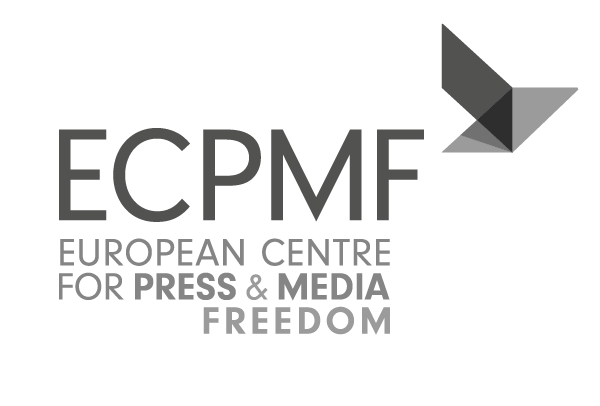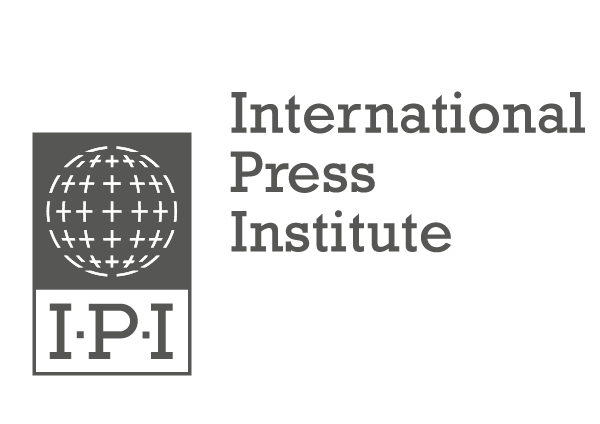There’s currently no good way for journalists to travel to Crimea. Rather, it’s a balancing act where one has to choose the least worst solution

Flying from Moscow to Simferopol is quick and relatively affordable if you’re travelling out of season, but according to Ukrainian law it’s also illegal. After the 2014 Russian annexation of the peninsula, Ukraine passed a law that prohibits travelling to Crimea via Russia. Violating it can lead to a fine and a ban on entering Ukraine.
Journalists who travel to Crimea via Ukraine need the necessary documentation to work in a territory that is de facto controlled by Russia. In addition to a Russian accreditation and work visas — obtained at the end of a long and demanding process that can prove particularly difficult for freelancers — journalists also need to make their way to Kyiv and present a series of documents to Ukraine’s ministry of information and immigration service, to obtain a permit to enter Crimea, which takes a minimum of one or two days. Then they can head south and make their way to what has become the border with Crimea, 668 kilometres away. Once on the peninsula, they are usually interviewed by FSB officers.
Anton Naumliuk, a Russian journalist who covers Crimea for Radio Liberty, has been travelling to the peninsula about six times a year recently, always via Ukraine. He says he’s noticed that the procedure on the Ukrainian side is becoming simpler and faster. He’s also seen the border gradually built up. “Two years ago there was nothing, just the ground,” he said. Now there’s portacabins and fences. In the summer, there can be long queues.
Journalists often encounter difficulties on the Russian side, he explained. “[FSB officers] ask you who you’ll meet. This interrogation can take hours. If the journalist is quite well-known they try not to do it. If you’re young, if you’re Ukrainian, or carry equipment, you’re more likely to be interrogated. It can be quite nerve-wracking.”
Journalists can be asked to display the content of their phones or computers, although, according to Russian law, they cannot be forced to provide passwords to law enforcement. Officers can search hard drives or flashcards. This means journalists are advised to wipe any sensitive information which could compromise their sources before crossing the border. FSB agents have also been known to ask journalists for their phones’ IMEI number, which could allow them to track the person’s movements when they are reporting in the peninsula.
On my way back from a recent reporting trip to Crimea I met Tetiana Pechonchyk, who monitors human rights violations in Crimea at the Human Rights Information Centre in Kyiv. Her organisation has been campaigning for an easier access for journalists to the peninsula, in a context where coverage by Ukrainian journalists has gradually become near to impossible. “Almost no Ukrainian journalist is able to work in Crimea. A lot of Ukrainian journalists who covered the occupation and persecutions connected to it left Crimea. Ten Crimean media outlets moved to mainland Ukraine with their staff. They continue to cover Crimea but a majority of the websites are blocked on the peninsula, while not being blocked in Russia,” she said.
According to the Human Rights Information Centre’s monitoring, the number of assaults against journalists in Crimea has gone down, but for Pechonchyk, this does not mean much: “They pushed most of independent journalists out. Once you’ve emptied the field then you have no one to repress. They were lots of physical attacks in 2014. In 2015 Russia used legal tools against media outlets. They wouldn’t give a Russian license to outlets. Then they picked journalists who work for the Ukrainian media and terrified them one by one. Small media and bloggers have started appearing in Crimea. The role of professional journalists has been taken over by average citizens who film videos of searches in Tatar houses, go to politically motivated trials to cover them. Now authorities have started persecuting citizen journalists as well.”
Naumliuk began reporting from Crimea because he saw what was taking place there as a continuation of the war in Donbass. “It’s a lot more important than it seems at first glance and offers some understanding into what happened after the breakup of the Soviet Union and what will happen to such a big territory, in places like Belarus and Kazakhstan,” he said. He mostly covers court cases, with a focus on persecutions against Tatars. He says very few foreign outlets work with him regularly, they’ll only ask for his help if something happens.
“[Without constant coverage] it’s super difficult to understand the situation. There’s no human rights organisations working on the ground and very few independent journalists. Very little information on repression against political prisoners goes out. For this reason, it seems nothing is happening in Crimea. It’s all very quiet. But if you speak with Tatars the picture changes. A majority of kids live without their father because of what has been happening,”Naumliuk said.
“I think that not enough journalists go, and that’s there’s not enough stories coming from Crimea, because of the travel,” Ola Cichowlas, who recently travelled via Ukraine to spend two days reporting in Crimea for the Agence France Presse, said in an interview.
“Meanwhile, the world has gotten tired of the story,” Pechonchyk said. Foreign journalists often come for the anniversary of the annexation, do a quick story and then leave.
According to the State Migration Service of Ukraine, 106 foreign journalists have travelled to Crimea via Ukraine between 2015 and March 2018.
In this context, the Human Rights Information Centre and other organisations have tried to push for a facilitated access for foreign journalists who travel to Crimea, but also for aid workers and lawyers for whom it can take much longer to obtain a permit. “The first issue in terms of access is security,” says Pechonchyk. “For a foreign journalist it’s safer to come to Crimea via the Russian Federation than enter via mainland Ukraine. You’re almost always interrogated by the FSB when you go via Ukraine, with a higher risk of being put under surveillance. If you fly to Crimea from Moscow you violate Ukrainian law but it’s safer.”
Pechonchyk believes the process enabling foreign journalists to travel to Crimea should be made simpler: “It shouldn’t be a permission, but a notification. People should be allowed to do it from abroad, via a consulate or an embassy through an online form, and they should be able to apply in English – it’s all in Ukrainian at the moment. This should be a multi-entry permit and the number of categories able to get it should be extended.” At the moment, the list only includes journalists, human rights defenders, people working for international organisations, travelling for religious purposes, to visit relatives or people who have relatives buried in Crimea. Researchers and filmmakers, for instance, are not included and struggle to go to Crimea legally.
Pechonchyk also believes there should be exceptional cases – emergencies – where journalists and lawyers are allowed to travel from Russia, to attend a trial, or report on an arrest, for instance. The existing legislation offers little clarity and seems to be mostly applied when Ukraine wants to punish individuals who supported the annexation, as happened in 2017 when they banned a Russian singer who was to take part in the Eurovision and had performed in Crimea.
But there seems to be little room for a debate on this in Ukrainian society at the moment. Difficulties of access also apply to journalists who visit the self-proclaimed separatist republics of Donetsk or Luhansk, who need a series of accreditations from the Ukrainian and the separatist side, are not supposed to enter the separatist republics from Russia, and can face backlash once they have travelled to the republic. This is what happened when in August 2016, personal information of journalists having visited DNR and LNR was leaked to Myrotvorets, a Ukrainian website known to be supported by Ukrainian police and secret services. The leak included journalists from more than 30 media outlets, who had been merely covering the war on the rebel side but were depicted by nationalists as “collaborating with terrorists”. No one was prosecuted for the leak.
Johann Bihr, who covers Eastern Europe for Reporters Without Borders, told Index: “It’s important that foreign journalists keep heading to Crimea and going back there. And we encourage Russia and Ukraine to facilitate access for journalists. If they fail to do so we face some kind of double penalty, where Crimea is abandoned by the international community because it has not been recognised and turns into an information black hole.”





